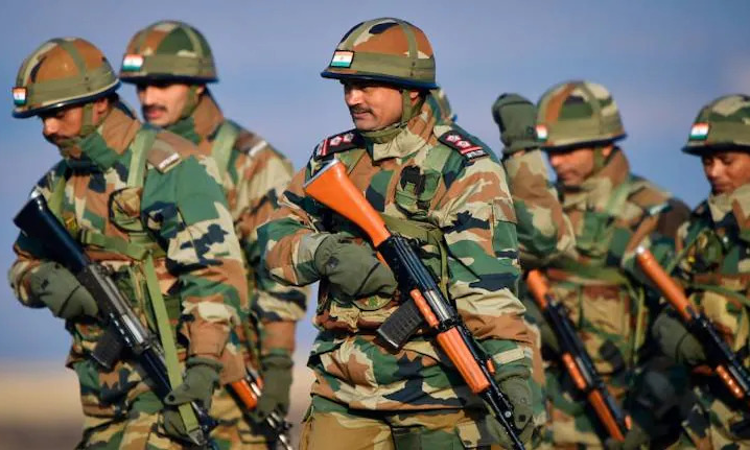- Home
- /
- High Courts
- /
- Delhi High Court
- /
- Disability Pension Can Be Granted...
Disability Pension Can Be Granted For Disease Suffered By Armed Forces Personnel After Joining Service: Delhi High Court
Nupur Thapliyal
3 July 2025 11:25 AM IST
The Delhi High Court has ruled that grant of disability pension to Indian Armed Forces personnel is "not an act of generosity" but a rightful "acknowledgement of their sacrifices which manifest in the form of disabilities or disorders" suffered during the course of their military service.A division bench comprising Justice Navin Chawla and Justice Shalinder Kaur said that the benefit of the...
The Delhi High Court has ruled that grant of disability pension to Indian Armed Forces personnel is "not an act of generosity" but a rightful "acknowledgement of their sacrifices which manifest in the form of disabilities or disorders" suffered during the course of their military service.
A division bench comprising Justice Navin Chawla and Justice Shalinder Kaur said that the benefit of the grant of disability pension must be "construed liberally and extended to the deserving beneficiaries".
“Such pension ensures that a soldier who suffers injury or disability due to service conditions is not left without support and is able to live with financial security and dignity. It is a measure that upholds the State's responsibility towards its soldiers, who have served the nation with courage and devotion,” the Court said.
The Bench was dealing with a batch of petitions filed by the Union Government challenging various orders passed by the Armed Forces Tribunal holding that the respondent personnel were entitled to the grant of disability pension for their respective disabilities.
The issue in the matter pertained to the disability suffered by the Armed Forces personnel due to some illness while being in military service.
The issue before the Bench was whether an Armed Forces personnel who suffered from a disease or disability during service, which was absent at the time of entry into the military, would be considered as suffering from a disability attributable to or aggravated by service in accordance with the Entitlement Rules of 2008?
The Bench ruled that the Armed Forces personnel, in defending the nation from external threats, have to perform their duties in most harsh and inhuman weather and conditions, be it on far-flung corner of land, in terrains and atmosphere where limits of mans survival are tested, or in air or water, where again surviving each day is a challenge, away from the luxury of family life and comforts.
The Court observed it is incumbent upon the Release Medical Board (RMB) to furnish cogent and well- reasoned justification for their conclusions that the disease or disability suffered by the personnel cannot be said to be attributable to or aggravated by such service conditions.
Furthermore, the Bench noted that even in Peace Stations, military service is inherently stressful due to a combination of factors such as strict discipline, long working hours, limited personal freedom, and constant readiness for deployment.
The psychological burden of being away from family, living in isolated or challenging environments, and coping with the uncertainty of sudden transfers or duties adds to this strain, it said.
“Moreover, it must be noted that lifestyle varies from individual to individual. Therefore, a mere statement that a disease is a lifestyle disorder cannot be a sufficient reason to deny the grant of Disability Pension, unless the Medical Board has duly examined and recorded particulars relevant to the individual concerned,” the Court said.
It further observed that disability pension cannot be denied solely on the ground that the onset of the disability occurred while the Force personnel were posted at Peace Station.
The Bench said that it is disheartening that members of the Armed Forces are being denied disability pension solely on the said ground and that such a situation overlooks the continuous physical and mental stress faced by soldiers, regardless of their location.
The Court dismissed the pleas filed by the Union Government, concluding that the claim of respondent personnel for disability pension on account of Primary Hypertension, could not be outrightly rejected solely on the basis of the place of the disease's manifestation.
Title: UNION OF INDIA & ORS v. COL. BALBIR SINGH (RETD.) and other connected matters
Citation: 2025 LiveLaw (Del) 739



